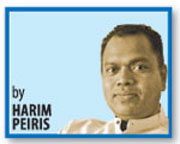
|
 Bob Blake’s visit and a Human Rights Agenda
Bob Blake’s visit and a Human Rights Agenda
Robert O Blake, Assistant Secretary of State for South and Central Asian Affairs and former United States Ambassador to Sri Lanka is due to visit Sri Lanka on May 3rd, a visit originally scheduled to occur in April but postponed to May. Bob Blake will be coming to Sri Lanka at a time when the government is facing a serious international situation with the publication in full of the UN experts report on accountability issues in Sri Lanka. It is widely believed that the US will be at the forefront of pushing for accountability in Sri Lanka. This also comes at a time when the US State Department has raised concerns regarding the state of human rights in Sri Lanka.
“Disappearances continued to be a problem, although the total also declined. Many independent observers cited a continued climate of fear among minority populations, in large part based on past incidents. Official impunity was a problem; there were no public indications or reports that civilian or military courts convicted any military or police members for human rights abuses. The government established a post-war Lessons Learnt and Reconciliation Commission (LLRC).
“Infringement on freedom of movement was lower than in the previous year, and citizens were able to travel almost anywhere in the island; in practice police and military checkpoints were still a frequent sight in Colombo and elsewhere, and numerous High Security Zones (HSZs) and other areas remained off limits to citizens. Election law violations and government influence created doubts about the fairness of both the Presidential and the Parliamentary elections.
“With the passage of the 18th amendment in September, the mechanism by which the seats on the Constitutional Council and its subsidiary councils are filled was changed. The president now holds the authority to name all members to each of these councils, with only the requirement to "seek advice," but not approval, of the parliament. Violence and discrimination against women were problems, as were abuse of children and trafficking in persons. Discrimination against persons with disabilities, persons with HIV/AIDS, and the ethnic Tamil minority continued, and a disproportionate number of victims of human rights violations were Tamils”. (US State Department, 2011)
The government response was as follows.
“Yes there are incidents of torture, we ourselves have admitted that but yes there are cases we could not investigate especially in the North and the East due to the conflict," Prof. Rajiva Wijesinghe told BBC Sinhala service.
Human rights flow from our being human beings. Civilized societies and legitimate states are required to protect them. Human rights violations in Sri Lanka are a sensitive subject. The government denies it; the people ignore it, all part of a social compact, during a necessary war against separatist terrorism. As Cicero argued in the Roman Senate, “In the war of good against evil, the laws are silent”. However surely there is a very valid political question whether two years after the end of the war, such a situation should continue, whether as part of our peace dividend, an improvement in the human rights situation should not occur.
There are irrefutable facts in the US State Department report we cannot deny, such as impunity. Blanket denials lack seriousness and erode the credibility of the persons making such denials and the institutions they represent. A better response by the Sri Lankan government, her security agencies and Human Rights Commission, would be to admit to problems regarding human rights and take concrete, if small and incremental measures towards improving the same for the betterment and welfare of Sri Lanka.
(The writer served as Presidential Spokesman from 2001-2005)
(2011-5-2/DailyMirror)
|





